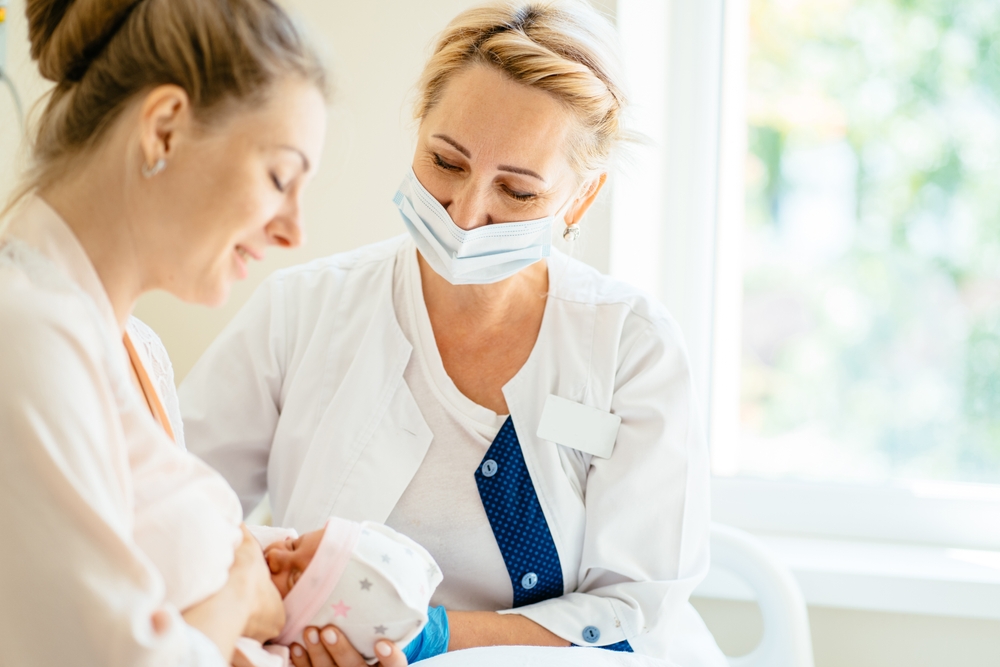Basics on Bronchiolitis
By Natalia Darling, PA-C
What is Bronchiolitis? Bronchiolitis is an infection that affects a part of the lungs called the bronchioles, which are small branching tubes the transfer and carry air in and out of the lungs. If these tubes are infected, they can become swollen and easily filled with mucous, which can make it difficult for a child (who is smaller than an adult and therefore has smaller lungs and passageways for air) to breathe. Bronchiolitis can be caused by many different viruses, but one of the most well-known viral causes is RSV.
What is RSV? RSV, or Respiratory Syncytial Virus is a virus that causes respiratory tract infections in all ages. Outbreaks in our area generally occur in the winter, with a peak between January and February. The hallmark of RSV is excessive production of mucous– in adults this causes a bad cold, but in children and babies with small airways and passageways it can be more problematic due to the sheer volume of mucous/snot produced. RSV can cause bronchiolitis, which is an infection and inflammation of the small branching tubes in the lungs which transport air. RSV is generally the most symptomatic for the first 3-7 days of illness. Afterwards symptoms will slowly but gradually improve, however, the cough may linger for weeks afterwards.
What are the symptoms of bronchiolitis/RSV?
- Runny nose and congestion
- Wet cough, which may be worse at night (causing your baby to not sleep well)
- Fever
- Decreased appetite
Why can bronchiolitis be problematic? In younger children who have smaller airways or children with pre-existing risk factors like prematurity or a previously diagnosed lung condition, the excessive mucous produced by bronchiolitis can cause difficulty breathing, difficulty feeding, and difficulty sleeping. On occasion, children with bronchiolitis may be hospitalized if they become dehydrated or if they are working too hard to breath.
Are there any tests that can be done? Bronchiolitis is often diagnosed based on the history you report to your provider about your child’s illness and by what we see on physical exam. In certain circumstances, we do have the ability to test for RSV in our office- which is completed by taking a swab sample of your child’s nasal secretions. However, we do not always do this test if we do not think it is going to change our treatment plan and the way we manage your child.
How do you treat bronchiolitis? Most cases of bronchiolitis are caused by a virus, so antibiotics are not useful in its treatment. Instead, the majority of what we do during the course of your child’s illness is for comfort to help them feed and sleep better, and to monitor them closely for warning signs. Some things you can do to make your child feel better and to help the course of the illness
- Offer fluids: the goal is to have at least three urinations in a 24 hour period. Any fluid is fine – breast milk formula, milk, water, diluted juices, and broths.
- Put a humidifier in the bedroom. There is no preference of warm mist or cool mist.
- Use nasal saline and nasal suctioning. This is particularly helpful when done before meals/bedtime to help improve your child’s feeds and sleeping.
- Chest PT: Lay your child on their belly and cup your hand and gently thud on your child’s back to loosen secretions in the lungs.
- Sleep elevated– sleep your baby in a swing or car seat or put a rolled up towel under your child’s mattress. If your child is older than1 year, you can put a pillow under their head.
- Steam up a hot shower and sit in the hot steam.
- Use tylenol (2 months and older) /motrin (6 months and older) if your child has a fever or is fussy. Click here for dosing charts
What do I need to look out for if my child is diagnosed with bronchiolitis?
- Signs of respiratory distress or increased work of breathing: breathing faster than usual, wheezing or a whistling sound when breathing, using the muscles underneath the rib cage or between the ribs to breath.
- Signs of dehydration: if you child is not urinating every 6-8 hours or at least three times in a 24 hour period, and decreased level of alertness.
- Worsening symptoms
- Fever of greater than 100.4 that lasts for more than five days.
CALL 911 if you are every concerned about your child’s ability to breath or stops breathing, starts to turn blue or pale, has a very hard time breathing, starts grunting, or looks like they are getting tired of having to work so hard to breath.
Is your child exhibiting any of these symptoms? You can click below to request an appointment or call us at 301 279-6750.
![]()






